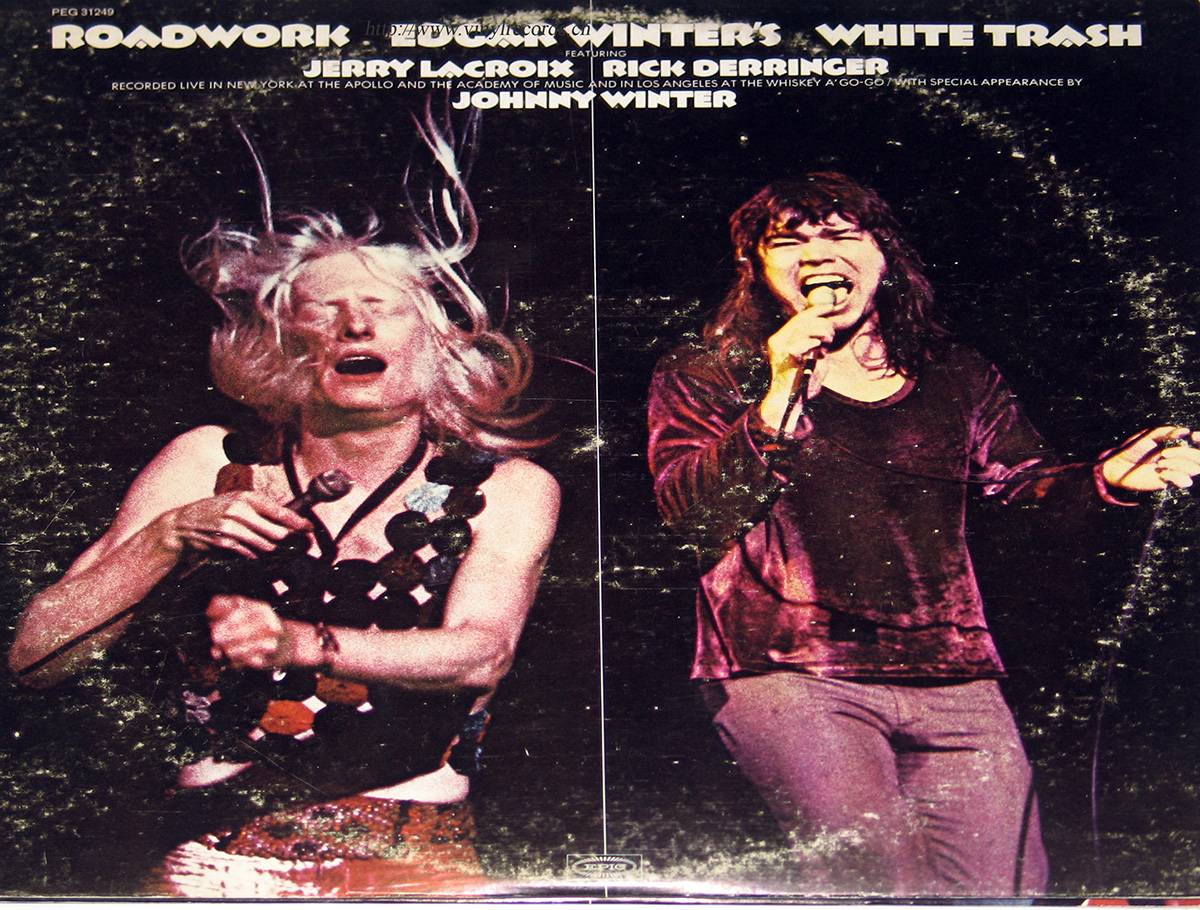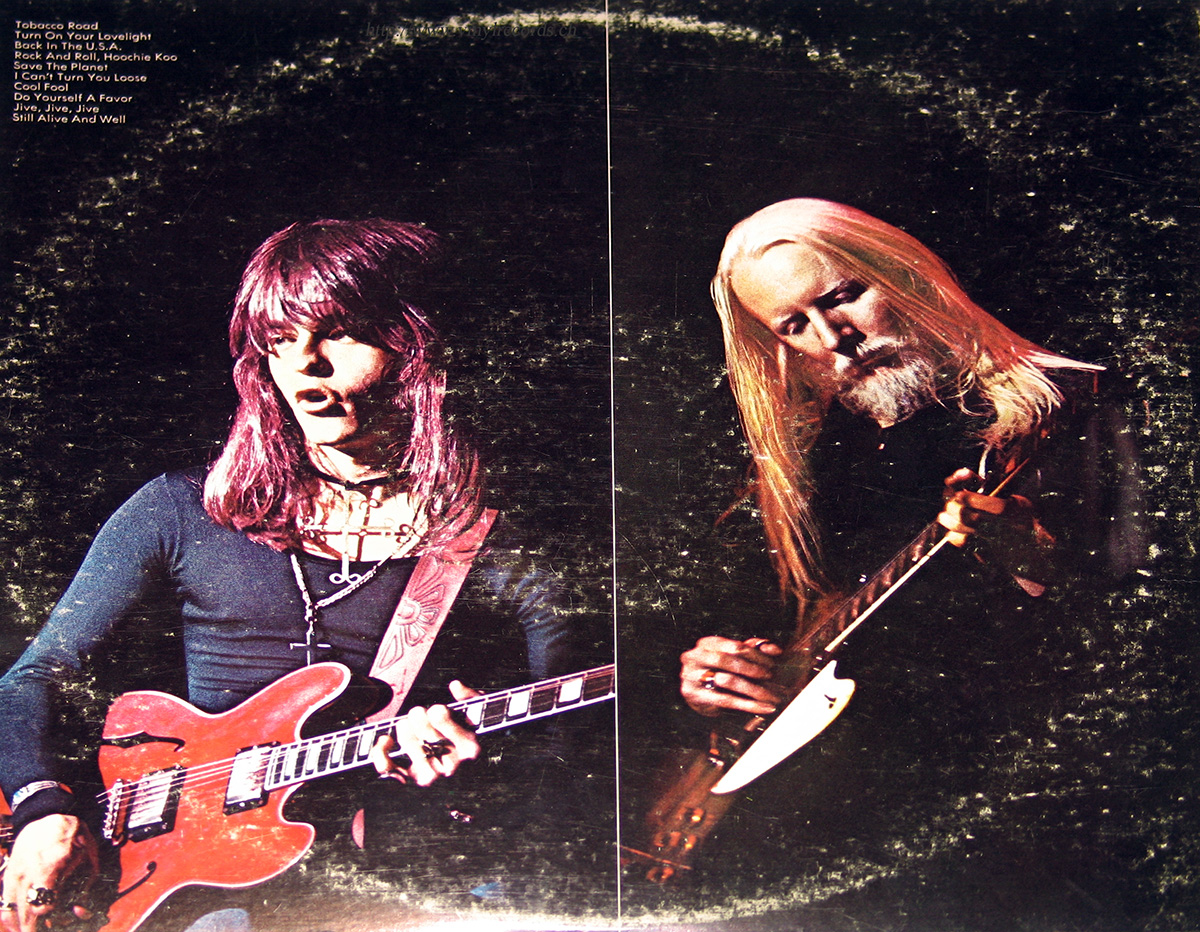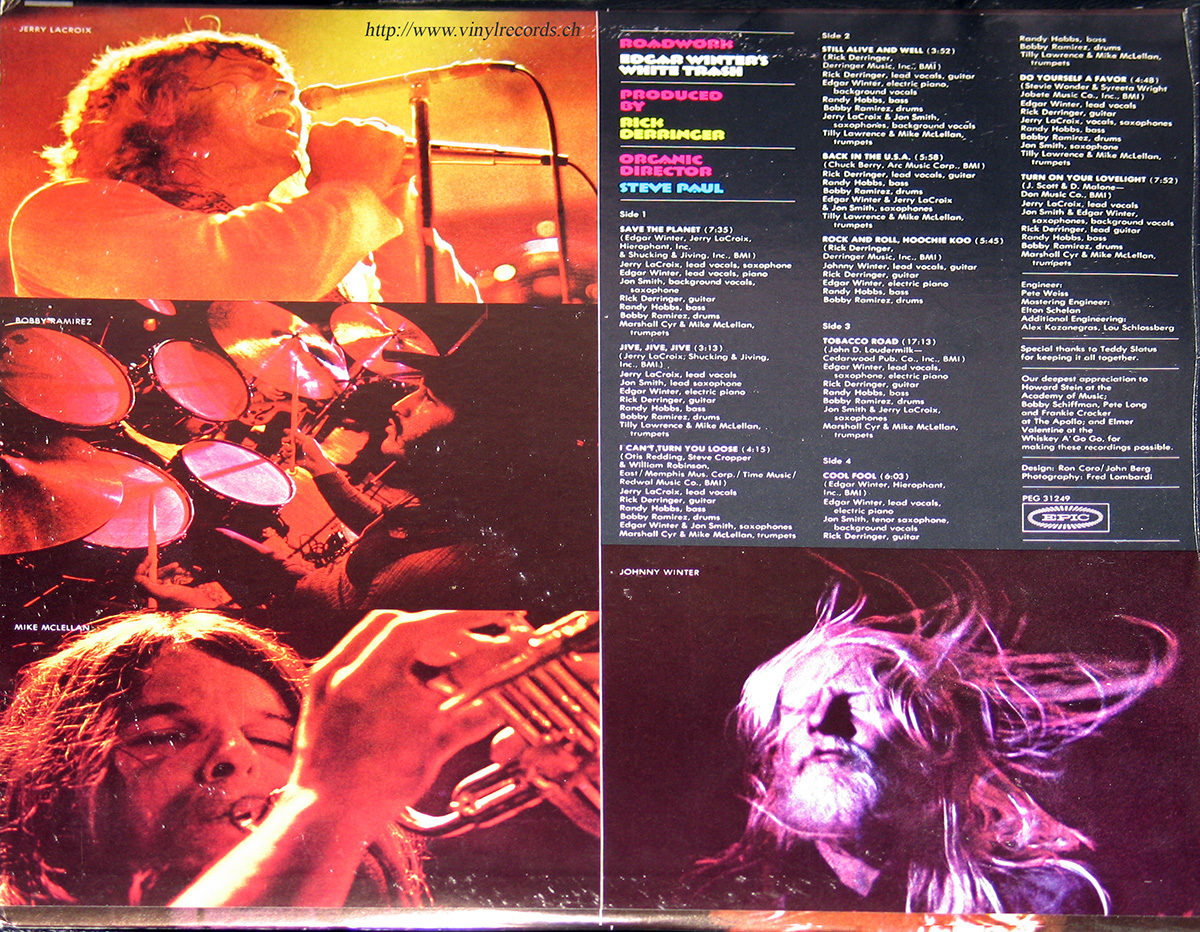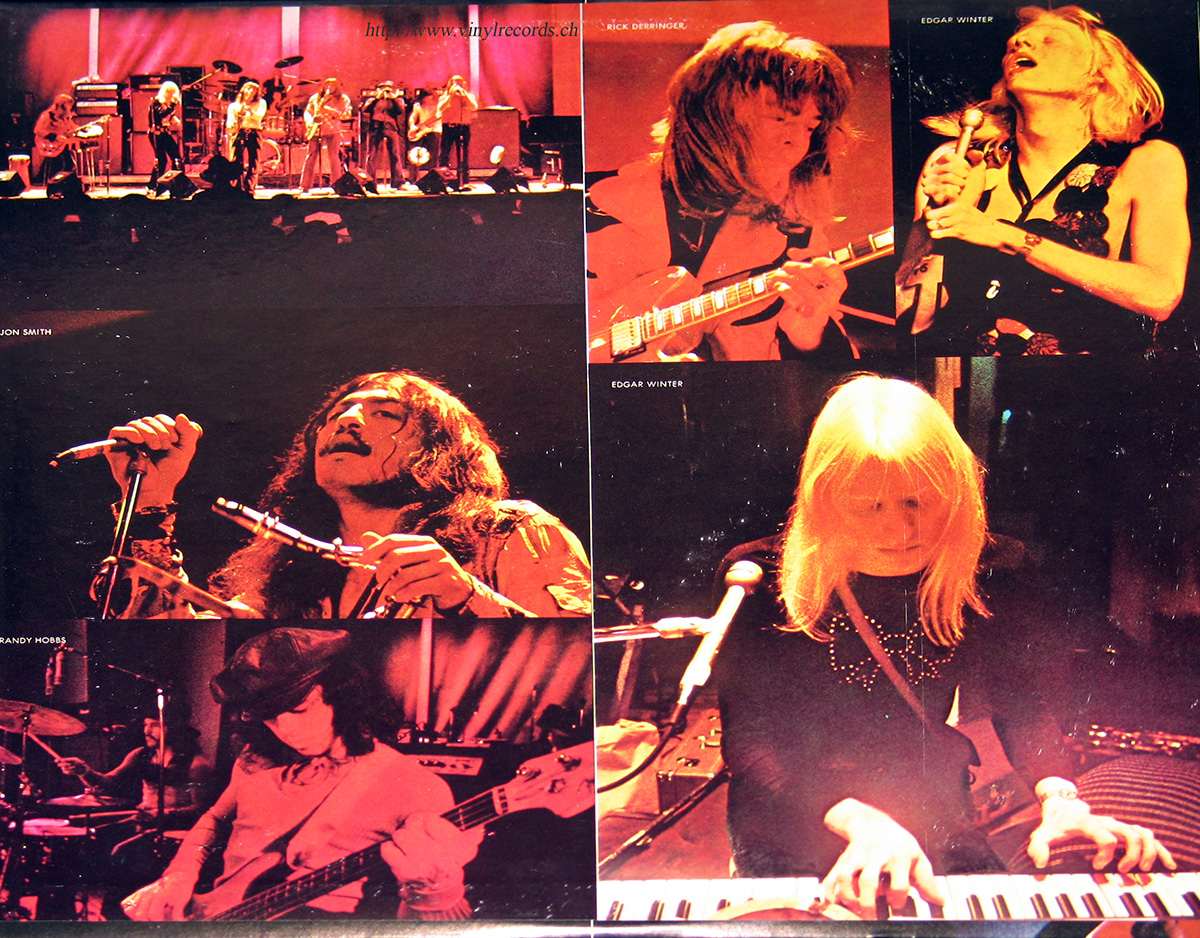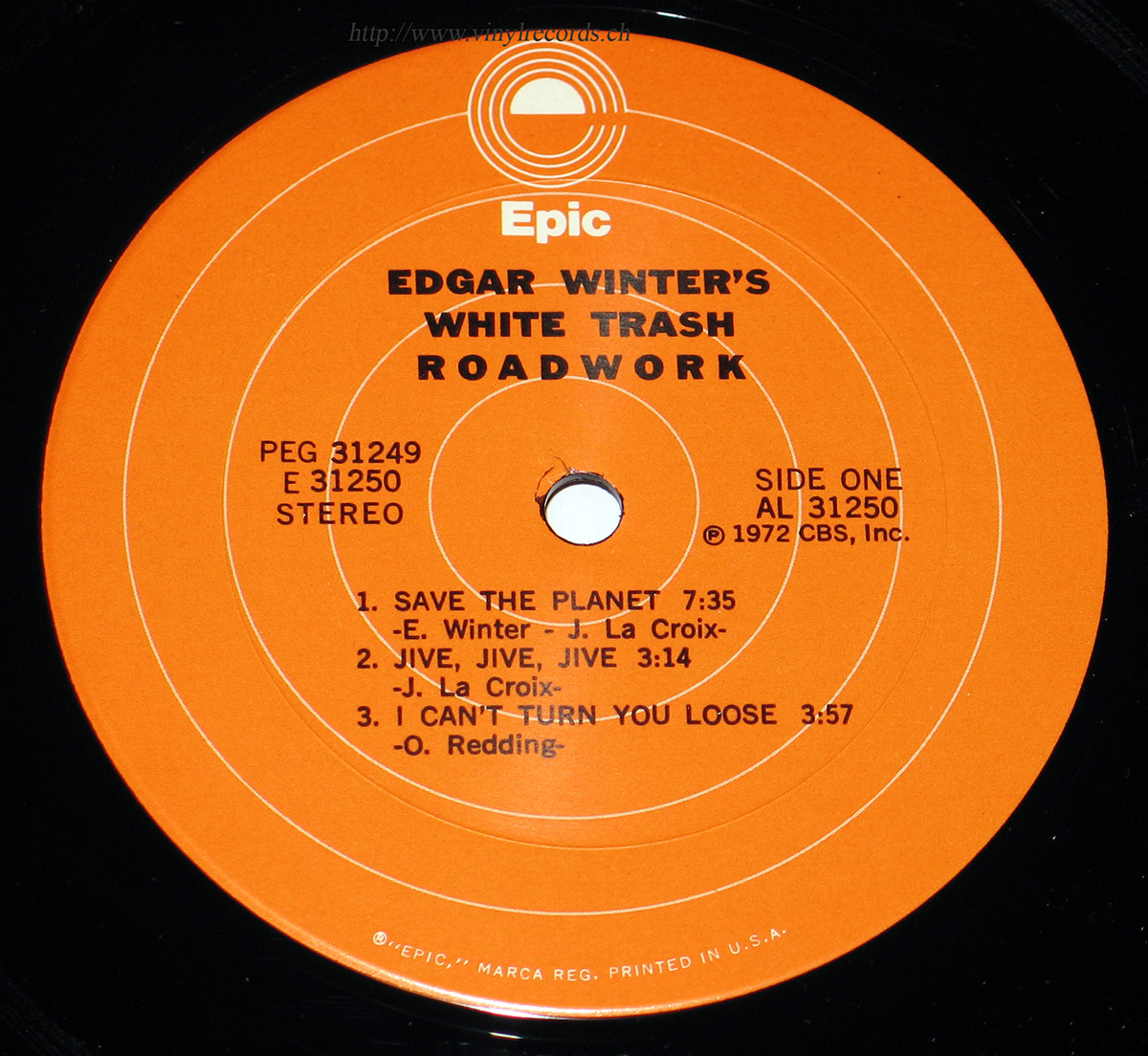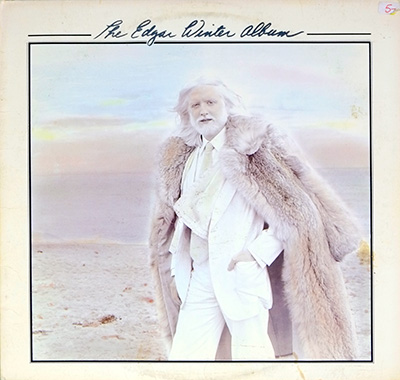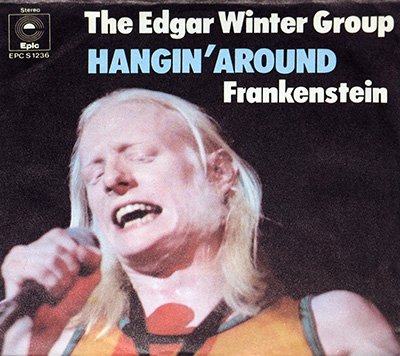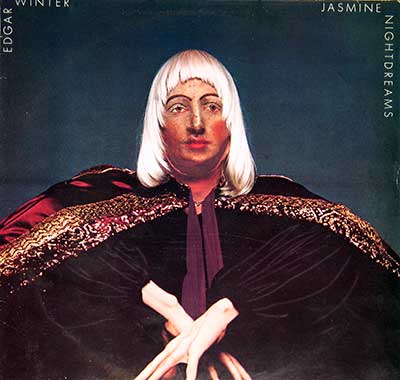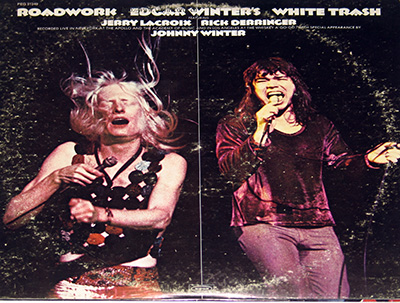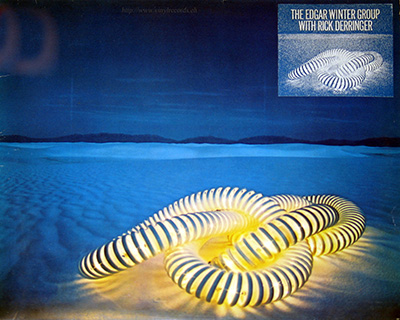"Roadwork" Album Description:
In the dynamic and ever-evolving landscape of 1970s music, Edgar Winter's "Roadwork" stands out as a testament to the era's prolific creativity and the fusion of diverse musical elements. Released in 1972, this double LP not only showcases the musical prowess of Winter and his band, White Trash, but also serves as a sonic time capsule that captures the essence of the early '70s.
Produced by the acclaimed duo of Rick Derringer and Steve Paul, the album benefits from the combined genius of these two influential figures in the music industry. Derringer, known for his work with the McCoys and later as a solo artist, brought his rock expertise, while Paul, a notable record producer, contributed his visionary approach to the production.
The sound engineering team behind "Roadwork" further elevated the album's sonic quality. Pete Weiss, Elton Schelan, Alex Kozanegras, and Lou Schlossberg worked collaboratively to ensure that the recording captured the energy and nuances of White Trash's live performances. Their meticulous work behind the mixing console contributed to the authenticity of the album, giving listeners an immersive experience reminiscent of a live concert.
The visual elements of "Roadwork" are not to be overlooked. The album cover design, crafted by Ron Coro and John Berg, reflects the artistic aesthetic of the time. The design is a visual feast, with intricate details that complement the musical journey within. The cover photography, masterfully captured by Fred Lombardi, adds a layer of storytelling, offering a glimpse into the vibrant atmosphere surrounding Edgar Winter and White Trash during their performances.
The release of "Roadwork" in 1972 marked a significant contribution to the music scene of that era. In a time when artists were pushing boundaries and experimenting with genres, this album showcased the fusion of rock, blues, and jazz, creating a sonic landscape that resonated with the eclectic tastes of the early '70s audience.
One notable aspect of "Roadwork" is the inclusion of guest musician Johnny Winter, Edgar's brother. Johnny's presence on the album adds a familial connection and further enriches the musical tapestry, creating a collaborative masterpiece that transcends individual contributions.
As we revisit "Roadwork" in the context of the early '70s, it becomes evident that the album is more than a collection of songs; it's a cultural artifact that encapsulates the spirit of its time. The groovy rhythms, soulful melodies, and the raw energy captured in each track transport listeners to an era where music was not just heard but felt.
|
Music Genre:
Rock, Soul, R&B |
|
Album Production Information:
The album: "Edgar Winter's White Trash - Roadwork" was produced by:
Rick Derringer, Steve Paul
Steve Paul was a charismatic impresario who owned the legendary New York nightclub “The Scene,” a late-1960s haven for rock’s wildest innovators. Beyond curating electric nights for Hendrix and Clapton, he managed the explosive careers of Johnny and Edgar Winter with relentless vision and style. Learn about Steve Paul Rick Derringer an American guitarist, singer, songwriter, and producer. He first gained fame as a member of The McCoys, a rock group that had a hit with the song "Hang On Sloopy" in 1965. After The McCoys disbanded, Derringer joined the band "Johnny Winter And" with blues guitarist Johnny Winter.
Read Derringer's biography and colloberation with Johnny Winter
Sound/Recording Engineer(s):
Pete Weiss, ELton Schelan, Alex Kozanegras, Lou Schlossberg
Album cover design:
Ron Coro / John Berg
Album cover photography: Fred Lombardi
|
|
Record Label & Catalognr:
EPIC AL 32150 / OEG 31249 |
| Packaging:Doubše LP in Gatefold/FOC (Fold Open Cover) Album Cover Design with artwork / photos on the inside cover pages |
|
Media Format:
Double 12" Vinyl Stereo Gramophone Record
Total Album (Cover+Record) weight: 480 gram |
|
Year & Country:
1972 Made in USA |
